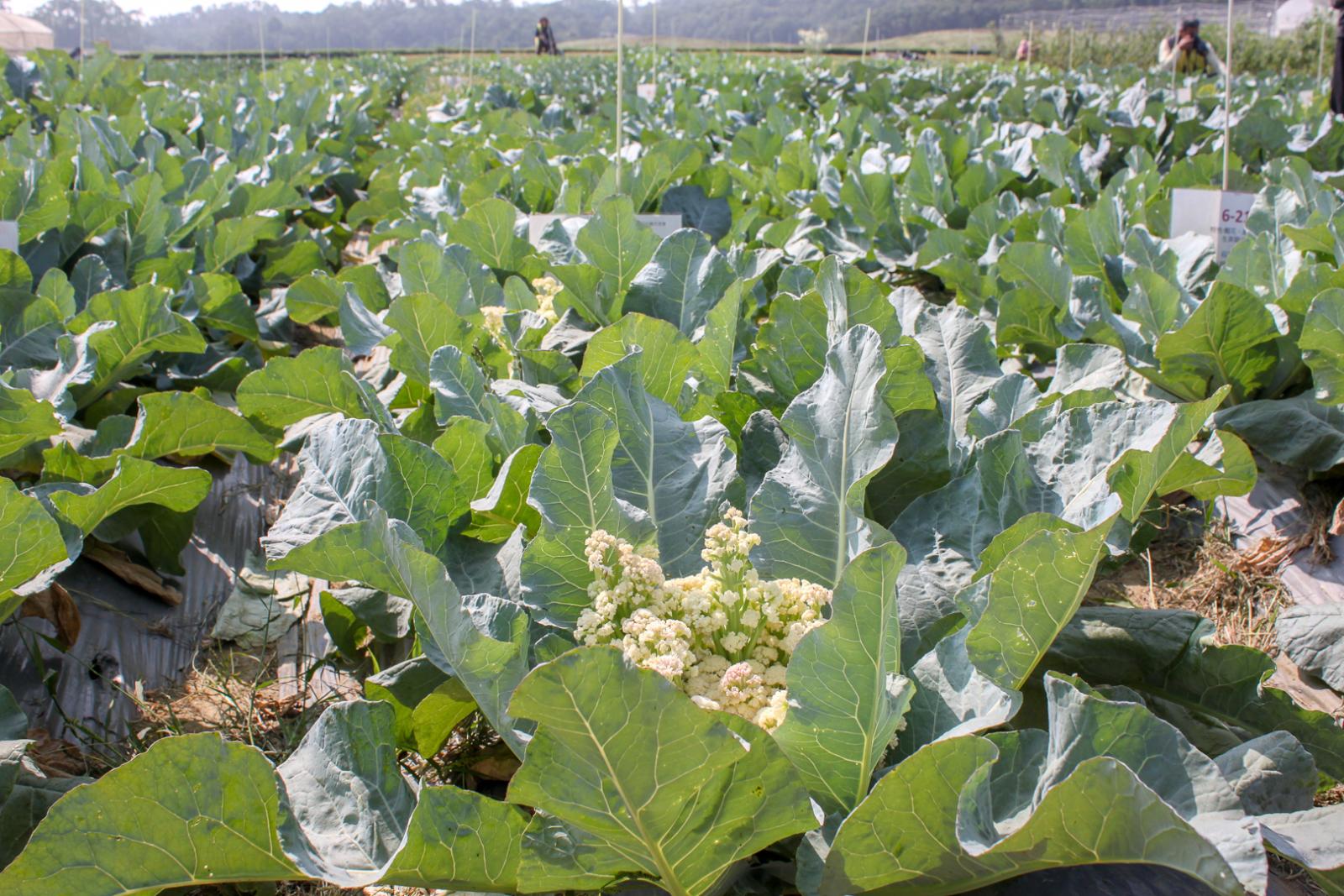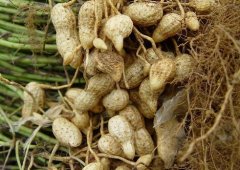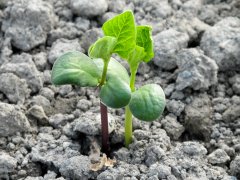Introduction of extremely heat-resistant cauliflower varieties, what are the advantages of cauliflower breeding in Taiwan?
Taiwan's mangoes and orchids are marketed all over the world, but many people do not know that cauliflower seeds are also famous as a treasure island in the world. Cauliflower is one of the few advantageous items with a complete industrial chain in seed collection and breeding in China, and private seed and seedling operators are particularly strong, walking in front of the research unit very early, in addition to focusing on the research and development of sweet and tender green stem pine flower system, the breeding of early and heat-resistant varieties is also their strong point.
According to the estimates of the seedling improvement breeding farm of the Council of Agriculture, in addition to the domestic market demand, cauliflower seeds are also exported to Southeast Asia each year of more than 10 metric tons, which is of high economic value.
Early growth and heat tolerance are the advantages of cauliflower breeding in Taiwan.
The story of the export of cauliflower seeds in Taiwan is very inspiring. Cauliflower was originally a cool crop in the temperate zone. The suitable temperature for the development of the bulb is 17 to 18 degrees Celsius. The formation of the rosette must undergo vernalization at a low temperature, and it is difficult to form a ball if it is too hot. On the contrary, it is too cold to sprout and blossom early. It is quite sensitive to temperature and light. The temperature in Taiwan, which is located in the subtropics, is on the high side, which is very challenging to planting techniques.
However, farmers in Taiwan have nothing and are most courageous. The Agricultural Experimental Institute of the Council of Agriculture and various seedling companies try to grow cauliflower everywhere year after year, just as some people are afraid of cold and others are afraid of heat. after long-term domestication and selection, they finally turned their disadvantages into advantages and bred early-born (short growth period) and heat-resistant varieties suitable for subtropical planting.
Lin Zhen-you, an assistant researcher in the vegetable department of the Fengshan Tropical Horticulture Research Institute of the Agricultural Test Institute, says that early birth and heat tolerance are often combined, presumably due to genetic linkage, and now different cauliflower varieties have their own suitable planting seasons. Taiwan has been able to grow all year round.
According to the statistics of the Agriculture and Food Department of the Council of Agriculture, the planting area of cauliflower in China in 2015 was 1679.2 hectares, with an annual output of about 45718 metric tons. Puyan Township in Changhua County was the most planted, and the producing areas were also concentrated in Nanzi District and Luzhu District of Kaohsiung, Chiayi and Yunlin.
Adversity has created resilience. Domestic seedling companies, such as Qingnong, Nongyou, Shengsheng, Xinhua, and Jiayu, have long invested in selecting heat-resistant varieties, grabbing the opportunity, and exporting seeds all the way to China, India, Southeast Asia and other countries.
The agricultural improvement farm will try out different companies and varieties of cauliflower in the field, and hold variety exchange meetings for various seedling companies to observe and exchange.
Take a different path, Songhua system leads the world.
Another key technology that has impressed the international community is the cauliflower pine flower system. Cauliflower can be divided into hard flowers and pine flowers according to the tightness and softness of the flower bulbs. In foreign countries, hard flowers suitable for salads are the mainstream. Green stem pine flowers are sweet and tender, suitable for stir-frying, and are more suitable for the stomach of Taiwanese. Therefore, Taiwan's seed and seedling merchants have put into breeding early to distinguish them from foreign markets. Instead, they have found a broad road.
According to the analysis of Qingnong Seedling Company, which cultivated pine flower system and selected more than one son, pine flower is a natural gene mutation, which is regarded as a bad mutation abroad, and such genes are seldom retained, so the development of pine flower system starts relatively late and seldom goes through natural selection.
"as far as Taiwan's seed and seedling industry is concerned, cauliflower is an internationally competitive item in vegetables. apart from being very rammed in Taiwan, China also has a high market share. Wang Santai, a researcher and director of the vegetable department of the Fengshan Tropical Horticulture Research Institute of the Agricultural Test Institute, said that in the early days, pine flowers were eaten only in Taiwan and Fujian, China. Later, seedling companies expanded their overseas business and gradually occupied a place in the whole of China.
Compared with hard flowers, pine flowers are lighter and less resistant to storage and transportation, but with the increasing development of China's highway system, transport consumption has been greatly reduced. Due to the large number of local people and the large market, many large overseas manufacturers have begun to pay attention to the pine flower system. Taiwan pine flower breeding started early and still has an empirical advantage.
Taiwan's cauliflower seed is not only competitive overseas, but for domestic farmers, it is a crop with a higher threshold for planting in the cruciferous family, unlike cabbage, which is prone to the problem of golden vegetables and soil, which is worth developing.
For domestic farmers, cauliflower is a crop with a higher threshold for planting in Cruciferae, unlike cabbage, which is prone to the problem of golden vegetable soil.
To meet the international market and climate variation, it is the key to stabilize the supply at the processing end and accelerate breeding.
In recent years, Tainan Agricultural improvement Farm has developed a conveyor belt continuous cauliflower / broccoli slitter, hoping to further seize the frozen vegetable market, but with the opening of the international market, how to maintain the quality and stable supply of frozen cauliflower? it is a challenge to both the government of agricultural units and the frozen processing industry. For front-end breeders, in the face of climate variation, such as either drought or waterlogging, extremely cold or extremely hot, in addition to maintaining the existing breeding advantages, how to meet the market demand and accelerate the breeding of new varieties has also become very important.
It is mentioned that the traditional breeding techniques in China have been studied for decades, and the newer molecular-assisted breeding techniques have accumulated achievements for about ten years. Recently, seedling improvement breeding farms and some seedling companies have tried to apply molecular biotechnology to cauliflower breeding, which can develop and establish molecular recognition markers and effectively reduce the manpower and time of cauliflower cross breeding.
"early birth, heat resistance, and delicious food are the characteristics of Taiwan's seed and seedling industry, and it is hoped that they can improve the competitiveness of the pine flower system in the future. Wang Santai gives an example of whether there is a way to be more heat-resistant, so that the flower bulb can grow at an environment of more than 40 degrees Celsius, or it is more disease-resistant and suitable for planting in cold areas in the north.
Hsu Han-chun, an assistant researcher in the crop improvement course in Tainan, also added that the varieties of cauliflower needed in the future should not only be heat-resistant and flood-resistant, but also insensitive to cold, because cauliflower is not as expected, it is easy to bolt and change color early, not only does it taste bad, but it also does not sell well, and it is too hot and not easy to form balls, causing growth delays, so it is necessary to take care of both, so there is a way to break through.

- Prev

Introduction of new peanut varieties in Taiwan what are the characteristics of Tainan No. 12 and Tainan No. 11 peanuts with good disease resistance?
At present, the variety "Tainan 11" with the largest planting area of peanuts is not Tainan 11, a new rice variety, but Tainan 11, which was bred and popularized in Tainan Field in 1975. It has the characteristics of high yield, large pods and grains, easy artificial harvest and so on. In addition
- Next

Is it okay to keep soybean seeds at home? How to keep soybeans during planting and after harvest
Soybean cultivation and management technology, in which soybean seed retention method is the homework that farmers must do. Recently, soybeans have been harvested one after another, and the agricultural media invited the title of "Prince of edamame" to study edamame beans and promote domestic soybeans for a long time.
Related
- The first cup of black tea in spring, the flavor and history of tea gardens in Kenya, Africa
- The computer can not only choose potatoes, but also grow tea rice. AI will grow winter oolong tea champion.
- It is not only the inflated tea bitten by insects, but also engraved with the four seasons tea in Beipu.
- The Oriental Beauty Tea Festival in Zhuxian County takes the stage at the weekend to experience the plus-size feast of oil tea.
- & quot; Oriental Beauty Tea & Exploration of Emei in Hsinchu, the hometown of quot;
- The new variety of strawberry "Tainong 1" dessert is the first choice with mellow aroma. Crimson gorgeous
- History of Tea in Taiwan: from Wild Inner Mountain to Export Tea Garden
- Two types of Taiwan Oriental Beauty Black Tea won the British three-Star Award for Childhood Tea Xiang Zhang Jiaqi changed from pilot to champion tea maker.
- Banana species and varieties: the planting history of Taiwan Xianren banana and dwarf banana is long, is banana disease resistant?
- Coffee planting Technology: Qianjie Coffee from Seedling to harvesting

